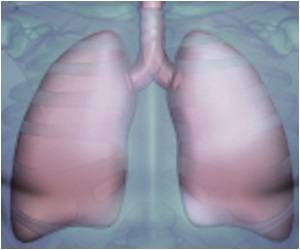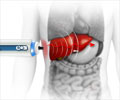Cystic fibrosis (CF) makes airways more acidic and reduces bacterial killing, say University of Iowa scientists.

Although the findings suggest that therapies that raise the pH of the airway surface liquid (ASL) may help prevent infection in CF, the researchers strongly caution that this discovery is at an early stage.
"Some have asked us if people with CF should inhale an aerosol that would raise the pH of the ASL," says Joseph Zabner, M.D., UI professor of internal medicine and senior study author. "At this point, we have no idea if that would help. And more importantly, it could be harmful."
"This was a very surprising finding," adds Alejandro Pezzulo, M.D., UI postdoctoral fellow and co-lead author of the study. "There have been many ideas as to what goes wrong in CF, but lack of a good experimental model has made it difficult to gain insight into how the disease gets started."
Unlike mouse models of the disease, the CF pigs develop lung disease that closely mimics what is seen in humans. Previous studies from the UI lab showed that although the airways of CF pigs are infection-free at birth, they are less able to get rid of bacteria than healthy airways and quickly become infected.
Testing bacterial killing in airways
Advertisement
The ASL from normal airways killed most of the bacteria very rapidly, whereas the ASL from CF-affected airways only killed about half of the bacteria, suggesting that in CF airways some bacteria would survive and go on to cause infection.
Advertisement
When the scientists raised the pH of the ASL in CF pigs through inhalation of a solution of sodium bicarbonate (baking soda), the treated ASL was capable of killing most of the bacteria on the grid (just like ASL from normal airways). Conversely, lowering the pH of ASL from normal airways reduced bacterial killing. The finding confirms that pH is a critical factor for bacterial killing,
"This study explains why a defect in the CFTR channel protein leads to reduced bacterial killing and an airway host defense defect," Tang says. "Impaired bicarbonate transport because of the defective CFTR could cause increased acidity in the ASL, which the study shows reduces the ASL bacterial killing capability."
Potential clinical applications
Although the approach is not ready for clinical application, the study indicates that pH is a contributing factor in airway infection, suggesting that therapies that modify airway pH may potentially be helpful in preventing infection in CF patients.
In addition, the researchers believe that using the bacteria-coated grids to measure bacterial killing in airways might provide a simple way to test the effectiveness of other new CF therapies that currently are being developed.
Source-Eurekalert












